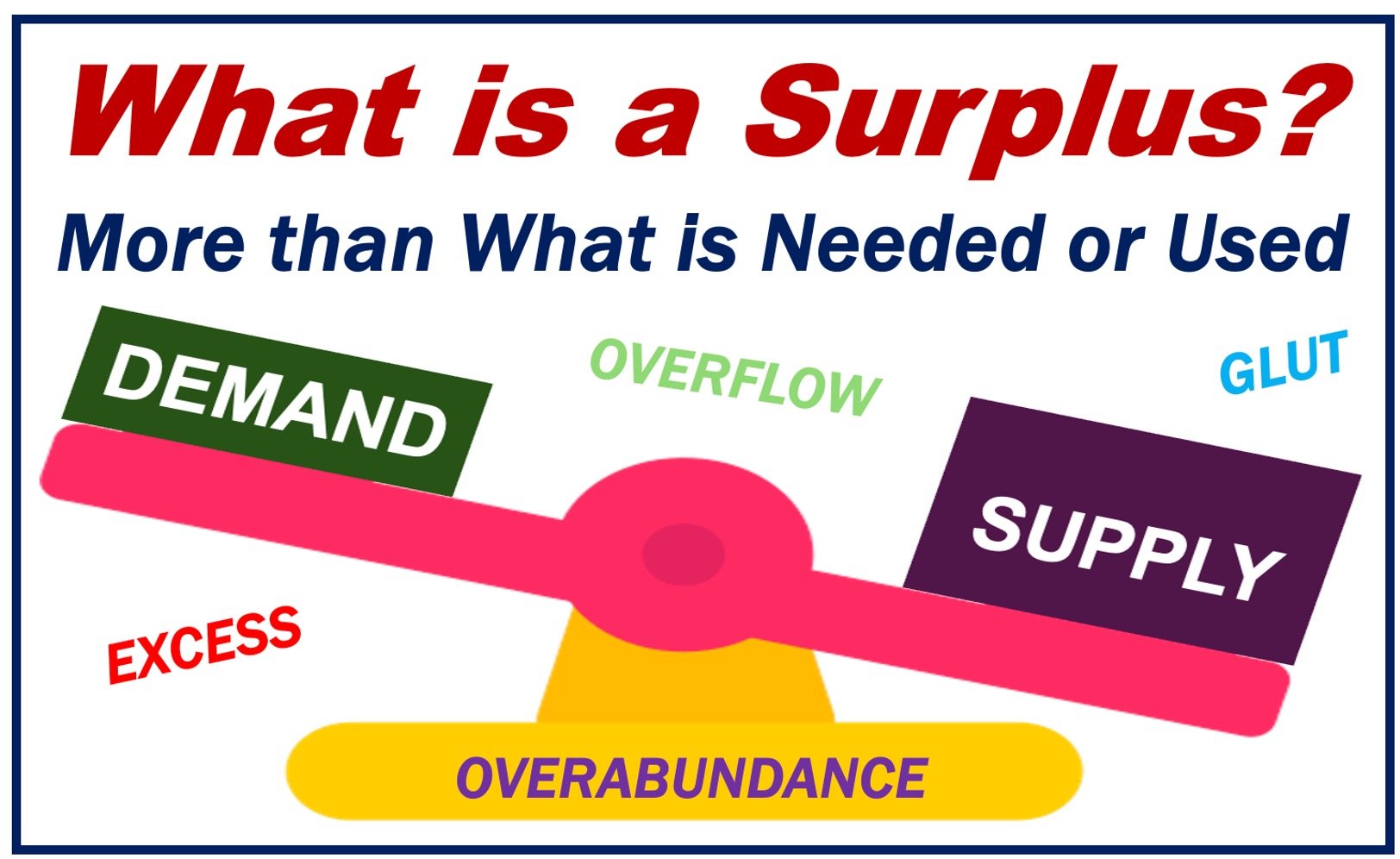A Surplus happens when you have more of something than you need or are using – there is some left over. We commonly use the term in finance, business, and economics.
A surplus may exist when we are talking about goods (products), services, government finances, agricultural output, energy production, real estate markets, and trade, among others.
In simple economic terms, when supply exceeds demand, there is a surplus. It is the opposite of a deficit or shortage.
The Cambridge Dictionary has the following definition of the term plus two example sentences containing the term:
“1. An amount that is more than is needed. Example Sentence: ‘The world is now producing large food surpluses.’ 2. A surplus is also the amount of money you have left when you sell more than you buy. Examples Sentence: ‘A trade surplus.'”
Some common examples
Let us take a look at three examples of supply exceeding demand:
-
Product Surplus
If you have a store, you might have a surplus of winter jackets when spring arrives. This means that you have some winter jackets left over after the season has ended – you have more jackets in stock than customers are currently buying.
-
Budget Surplus
If the government spends less than it receives from taxation, there is a budget surplus.
We can also use the term, in this context, for personal finance. For example, if you earn more money than you spend in a month, you have a personal budget surplus.
-
Labor Surplus
This occurs when there are more people available for work than there are jobs to fill. When unemployment rises so does the labor surplus.

How Do Surpluses Happen?
The following factors may contribute to an excess of supply:
-
Overproduction
If your company produces too much of something, hoping to meet high demand that does not materialize, you won’t be able to sell it all.
-
Decreased Demand
A product that was popular may not sell so well if people’s preferences change. Demand may also fall if consumers have less money because of a downturn in the economy.
-
Price Changes
If you raise the price of a product too high, demand for it may fall faster than expected, leaving a surplus stock.
-
Improved Efficiency
If your company finds more efficient ways to produce something, it will be able to create the same amount with fewer resources, potentially leading to excess production.
The Effects of Surpluses
Having too much of something is not always a bad thing, but it can impact markets:
-
Lower Prices
If your stocks of a product are too high, you may have a ‘sale’ to get rid of the excess. This is great for consumers, who benefit from lower prices.
-
Business Decisions
If your stocks of a certain product are persistently high, you may decide to either reduce production or sell something else.
-
Economic Indicators
Surpluses in certain areas can provide clues about the overall health of an economy.
Here are two examples:
1. A surplus of unsold homes in the real estate market might indicate a slowing economy or reduced consumer confidence in making large purchases.
2. A persistent glut of manufactured goods might suggest that a country is ready for increased exports.
Final Thoughts
A surplus means there is an excess of something – too much of something. They are a normal part of how markets function, influencing prices, production levels, and consumer choices.
Understanding the dynamics of supply and demand in the marketplace can help us make informed decisions in business and economics.
